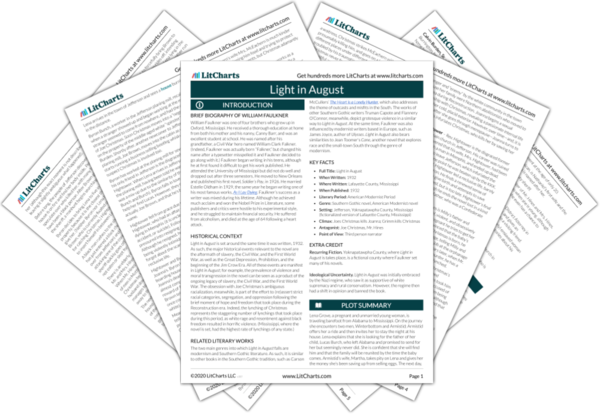Recall from earlier that according to the congregation, Hightower was never actually very interested in religion. Instead, he was obsessed with the past, and particularly the story of his grandfather. It thus makes sense that he no longer prays, and may have lost his faith altogether. The confusing final sentence of this chapter, with its contradictory double negatives, gives a further sense of mystery to Hightower’s feelings.
